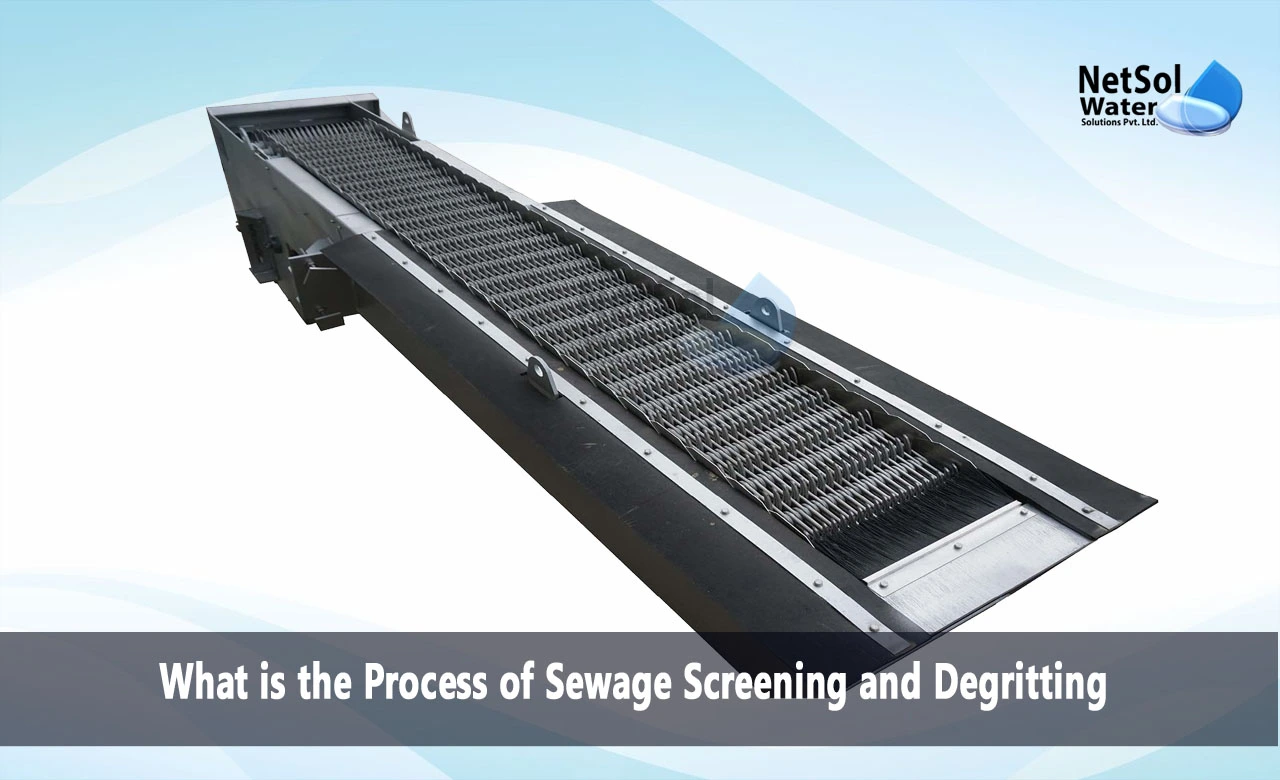What is the Process of Sewage Screening and Degritting?
Wastewater flows through a convoluted network of pipes and eventually reaches a sewage treatment plant when you empty your sink or flush your toilet. Because they treat sewage before releasing it back into water bodies, these facilities are essential to maintaining both public health and the environment. Screening and degritting are first steps in the treatment process that take care of removing large objects and gritty materials from the sewage. Let's examine the operation of these important steps.
Process of Sewage Screening and Degritting
· Screening
Screening is the first stage in sewage treatment facilities. In this process, trash and large objects are kept out of the sewage system so that the damage to equipment downstream and obstruction to the treatment process can be prevented.
Coarse Screening: Sewage is directed through a coarse screening mechanism, usually made of bars or gratings, as it enters the treatment facility. Large objects like rags, plastics, wood, and other heavy objects that could obstruct the flow of water or interfere with the treatment process are meant to be caught by these screens.
Fine Screening: The sewage passes through fine screening, which uses screens with fewer apertures, after coarse screening. Cigarette butts, sanitary products, and other small detritus that would have gotten past the coarse screening are removed by means of these screens.
· Degritting
Once the sewage has been screened for large objects, the next step is degritting. This process involves removing gritty materials, such as sand, gravel, and other heavy inorganic particles, from the sewage.
Grit Chambers: Degritting takes place in specialized chambers called grit chambers or grit channels. These chambers are designed to slow down the flow of sewage, allowing the heavier grit particles to settle at the bottom while the lighter organic matter remains suspended.
Removal Mechanisms: Grit that has settled is taken out of the grit chambers using a variety of mechanisms. Air-lift pumps, suction systems, and mechanical scrapers are a few popular techniques. Usually, the removed grit is cleaned, dumped in a landfill, or used for other things like building materials.
Importance of Degritting: Because these abrasive particles can put undue strain on downstream machinery like pumps and pipes, grit removal from sewage is crucial. Grit can also build up in digesters and tanks, which lowers their efficiency and raises maintenance needs.
Benefits of Screening and Degritting
The screening and degritting processes offer several benefits to the overall sewage treatment process and the environment:
1. Equipment Protection:Screening and degritting helps in protecting the downstream equipment from damage, thereby reducing the maintenance cost and increasing the service life of equipment.
2. Improved Efficiency: By removing various heavy and gritty objects from the sewage, screening and gritting helps in enhancing the performance of different treatment stages like biological treatment, disinfection and much more.
3. Environmental Protection: It also reduces pollution and protects aquaticlife by reducing the discharge of large and gritty materials into the water bodies.
4. Resource Recovery:The material that has been screened during the process can be recycled, which can promote sustainable practices.
Conclusion
The screening and degritting operations are critical first steps in wastewater treatment plants. By eliminating heavy objects and gritty elements from incoming sewage, these operations guarantee that downstream treatment stages run smoothly, safeguard equipment from damage, and contribute to environmental protection. Although sometimes forgotten, these important measures are critical to ensuring a clean and healthy workplace for everybody.
Netsol Water is Greater Noida-based leading water & wastewater treatment plant manufacturer. We are industry's most demanding company based on client review and work quality. We are known as best commercial RO plant manufacturers, industrial RO plant manufacturer, sewage treatment plant manufacturer, Water Softener Plant Manufacturers and effluent treatment plant manufacturers. Apart from this 24x7 customer support is our USP. Call on +91-9650608473, or write us at enquiry@netsolwater.com for any support, inquiry or product-purchase related query.



